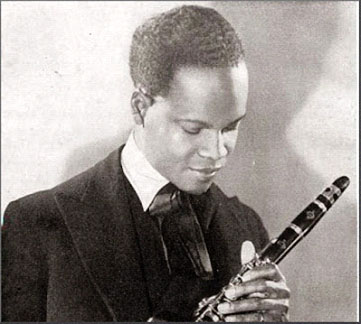Almost twenty-eight years ago a remarkable Gu-yanese died in London at the age of eighty-one. He is little known nowadays, but he was a pioneer at a time when the avenues for African Guyanese to have their talent acknowledged were severely restricted.
Born in Nabaclis on the East Coast of Demerara, in 1907, Dunbar eventually became a war correspondent, writer and eminent clarinetist and conductor. Below we reprint the obituary for him by Ian Hall, which first appeared in the London Independent of July 5, 1988, because it contains details of his life which should be of interest to readers. We first published it in our edition of July 6, 1988. He had died on June 10 of that year.
Rudolph Dunbar, grandson of a black slave, born in poverty in British Guiana, transcended the shackles of a colonial setting to become the first black man to conduct the Berlin Philharmonic Orchestra at the end of the Second World War.
He was a zealous pioneer of black involvement in Western European music, and combined a career as a musician with a marked contribution as a writer on international affairs. In 1939 he became the London correspondent of the Associated Negro Press in America, and was later appointed to be correspondent of the United States Eighth Army.
The British Guiana in which Dunbar was born offered little opportunity for the expression of individual ambition,

